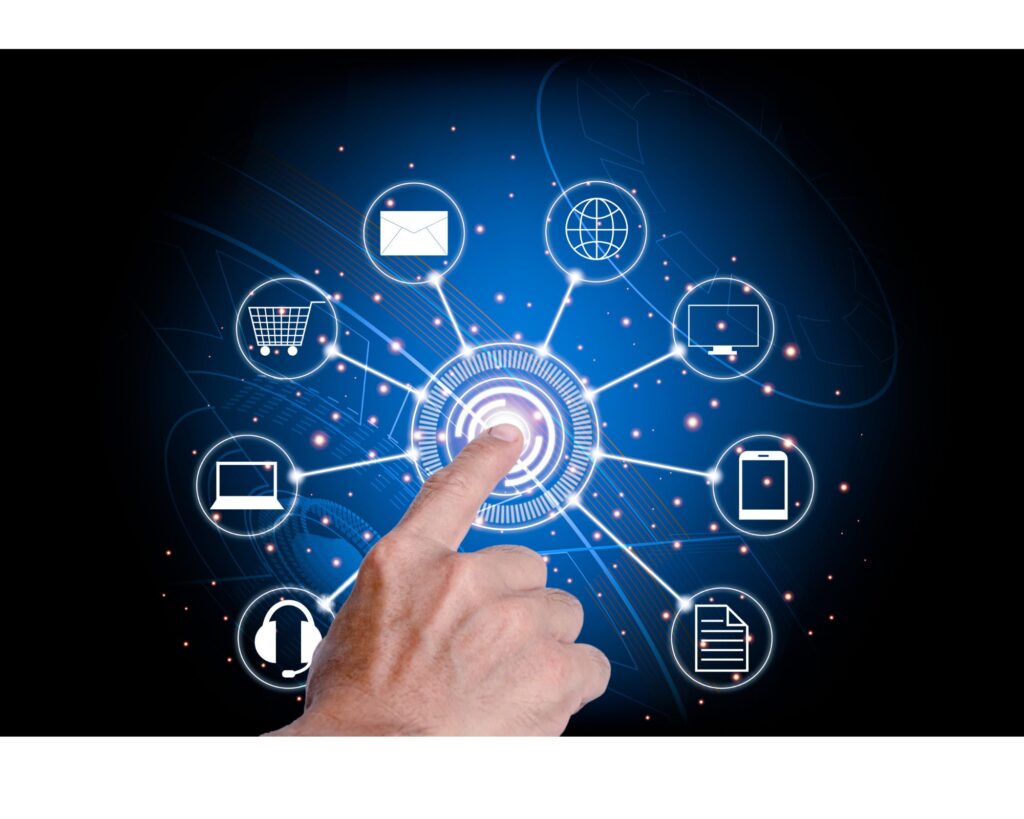DIGITAL MARKETING
Digital marketing refers to the practice of promoting and advertising products, services, or brands using digital channels, technologies, and platforms.
It encompasses all marketing efforts that use an electronic device or the internet.
In simpler terms, digital marketing is any form of marketing that happens online, allowing businesses to engage with their audience, increase their visibility, and drive sales through the use of digital tools.
Here are some key components of digital marketing:
1. Search Engine Optimisation (SEO)
- What it is: The process of optimising a website to rank higher in search engine results pages (SERPs) for relevant keywords.
- Key components: On-page SEO (like keywords and content), off-page SEO (like backlinks), and technical SEO (like site speed and mobile optimisation).
2. Pay-Per-Click (PPC) Advertising
- What it is: Paid advertisements on search engines, social media, or other digital platforms where advertisers pay each time a user clicks on their ad.
- Key platforms: Google Ads, Facebook Ads, LinkedIn Ads, and others.
3. Content Marketing
- What it is: Creating and distributing valuable content (blogs, articles, videos, etc.) to attract and engage a target audience.
- Key components: Blogs, eBooks, infographics, videos, case studies, webinars, and more.
4. Social Media Marketing
- What it is: Using social media platforms to promote a product or service, build a brand, and engage with potential customers.
- Key platforms: Facebook, Instagram, Twitter, LinkedIn, TikTok, YouTube, and others.
5. Email Marketing
What it is: Sending targeted, personalised messages to a group of people via email.
- Key strategies: Newsletters, promotional emails, drip campaigns, and transactional emails.
6. Influencer Marketing
- What it is: Partnering with influencers (individuals with a large online following) to promote products or services.
- Key platforms: Instagram, YouTube, TikTok, Twitter, and blogs.
7. Affiliate Marketing
- What it is: Partnering with affiliates (individuals or companies) who promote your products in exchange for a commission on sales.
- Key platforms: Affiliate networks, social media, blogs, and specialised affiliate marketing websites.
8. Online PR and Reputation Management
- What it is: Managing your brand’s online reputation through media coverage, reviews, and social mentions.
- Key tactics: Press releases, responding to reviews, crisis management, and building positive online relationships.
9. Video Marketing
- What it is: The use of video to promote products, services, or brands.
- Key platforms: YouTube, TikTok, Instagram (Reels), Facebook, and video ads on other platforms.
10. Analytics and Data-Driven Marketing
- What it is: Using data and analytics to measure, optimise, and improve marketing efforts.
- Key tools: Google Analytics, Facebook Insights, HubSpot, and other analytics platforms.
11. Mobile Marketing
- What it is: Strategies aimed at reaching users on their smartphones or tablets, such as mobile ads, SMS marketing, and mobile apps.
12. Conversion Rate Optimisation (CRO)
What it is: The process of improving a website or landing page to increase the percentage of visitors who complete a desired action (e.g., make a purchase or sign up for a newsletter).
WHY DIGITAL MARKETING IS ESSENTIAL IN BUSINESSES?
Digital marketing is essential for businesses in today’s world for a number of reasons. As more people and businesses move online, digital marketing becomes an indispensable tool to connect with customers and grow a brand. Here’s why it’s so important:
1. Wider Reach and Global Audience
Digital marketing allows businesses to reach a global audience without the geographical limitations of traditional marketing methods. Through various digital channels such as social media, search engines, email, and websites, businesses can engage with customers from all over the world at any time of day.
2. Cost-Effectiveness
Compared to traditional marketing methods like print advertising, TV, or radio ads, digital marketing is much more affordable. Small businesses can compete with larger companies by targeting niche audiences with highly effective campaigns, often for a fraction of the cost of traditional media.
3. Measurable Results
One of the biggest advantages of digital marketing is the ability to track and measure campaign performance in real-time. Tools like Google Analytics, social media insights, and email marketing analytics provide valuable data about how customers interact with your campaigns, allowing businesses to optimize strategies for better ROI (Return on Investment).
4. Targeted Marketing
Digital marketing allows businesses to target their audiences based on specific criteria such as age, location, interests, search behaviour, and more. This targeted approach ensures that businesses can focus their efforts on the most relevant prospects, increasing the likelihood of conversion.
5. Brand Building and Engagement
Digital marketing provides numerous opportunities for businesses to build their brand and engage with customers. Social media platforms, content marketing, and email newsletters are great ways to create a relationship with your audience. Through regular interaction, businesses can build trust, loyalty, and a strong brand presence.
6. Improved Customer Experience
Digital marketing allows businesses to provide personalized experiences for their customers. Through data-driven insights, businesses can tailor their marketing messages, offers, and recommendations to suit the preferences and behaviors of individual customers, leading to better engagement and customer satisfaction.
7. Better Conversion Rates
Digital marketing enables businesses to optimize their sales funnels and conversion paths. By using tactics like A/B testing, retargeting, and targeted ads, businesses can convert more prospects into actual customers, improving their overall sales performance.
8. Increased Mobile Usage
With the rise of smartphones, mobile internet usage has surged, making digital marketing even more critical. Businesses can reach customers through mobile-friendly websites, apps, social media, and SMS marketing, ensuring that they’re always connected to their audience no matter where they are.
9. Stay Competitive
In today’s highly competitive business landscape, digital marketing is a key tool for staying ahead of the competition. Businesses that effectively use digital marketing strategies can outperform those relying on outdated, traditional methods. Not having a strong digital presence can leave businesses vulnerable to competitors who do.
10. Adaptability and Flexibility
Digital marketing campaigns can be easily adjusted or refined based on performance. If a campaign isn’t yielding the desired results, businesses can tweak their strategies—changing ad copy, adjusting targeting parameters, or reallocating budget to the best-performing channels. This level of adaptability is far harder to achieve with traditional marketing.
11. SEO and Organic Traffic
Search Engine Optimisation (SEO) is a vital part of digital marketing. By improving the visibility of a website on search engines like Google, businesses can attract organic traffic without paying for ads. Higher organic search rankings also build credibility and trust among users.
12. Real-Time Interaction
Digital marketing platforms, especially social media, allow businesses to engage in real-time with customers. Immediate responses to inquiries, feedback, or concerns help businesses build stronger relationships and improve customer satisfaction. Real-time communication also helps businesses stay relevant and top-of-mind for their customers.
13. Scalability
Digital marketing efforts can scale as the business grows. Whether you’re just starting with a small campaign or planning to launch a nationwide product, digital marketing offers scalable solutions that can expand with your needs, reaching more people as your business grows.

